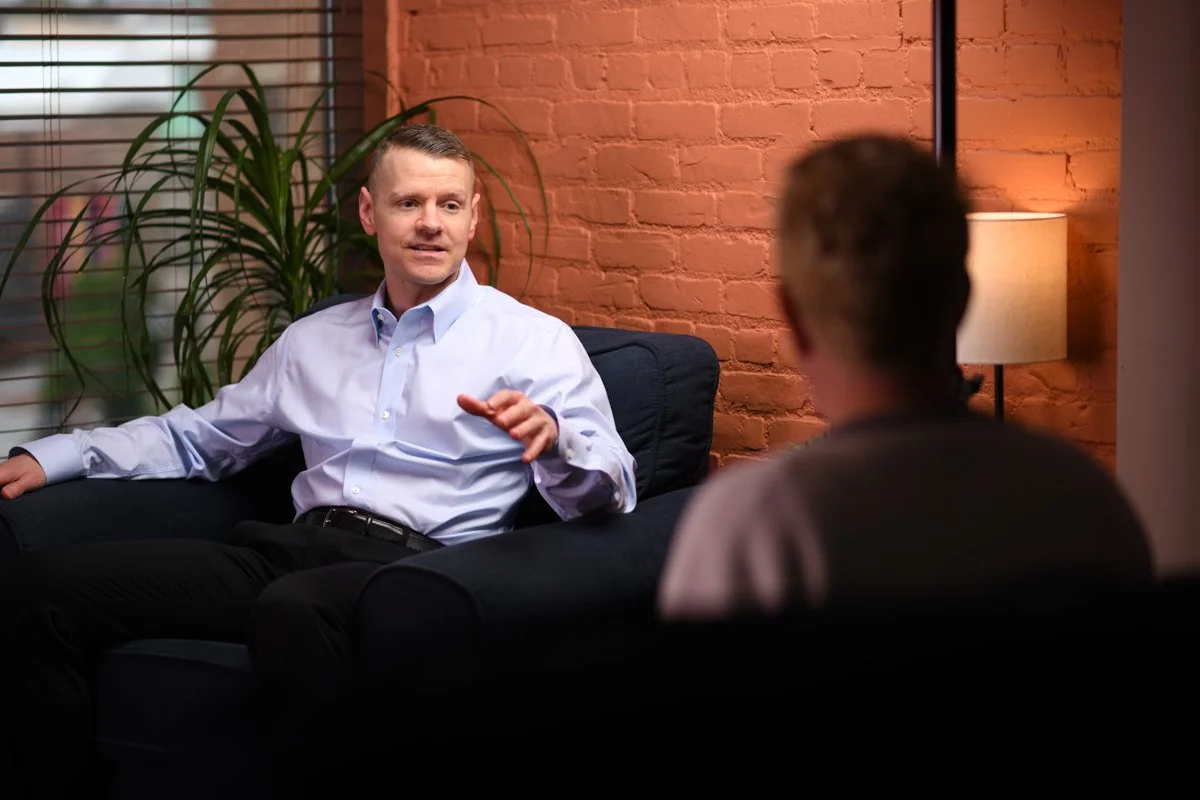You don’t have to face OCD alone.
OCD is devastating. It’s also highly treatable with exposure and response prevention therapy tailored to your unique experiences and goals.
Exposure & Response Prevention (ERP) Therapy
Traditional talk therapy helps patients gain insight into challenges and can be very beneficial for some people. However, it’s rarely effective in treating OCD.
ERP is a specialized form of therapy used to support those struggling with OCD and it’s the most well-researched treatment for the disorder.
Experiences
Before starting treatment, we’ll discuss in-depth how OCD shows up for you, beginning with your intrusive thoughts.
Core Fears
Exploring the fears at the heart of your thoughts and behaviors is critical to long-term success.
New Skills
Our primary goal during exposure therapy is to learn that you can engage in life despite intrusive thoughts and anxious feelings.
Virtual or in-office services.
1-3X/week virtual or in-office
Before treatment begins, we’ll explore how OCD affects you—starting with your intrusive thoughts—then identify the core fears driving them. Through exposure therapy, you’ll develop skills to engage fully in life, even with intrusive thoughts and anxiety present.
4-Day OCD Intensives.
This is a personalized, one-on-one intensive treatment for OCD, delivered over four consecutive full days. Drawing on research-based concentrated ERP (Exposure and Response Prevention), this in‑person format provides structured, deep engagement so clients can experience meaningful progress efficiently and privately. Available at your home in Minnesota, Texas, and Wisconsin. Contact us for more details.
-
Four straight days, each approximately 8 hours (e.g., 9 AM–5 PM), centered on personalized exposure exercises targeting your fears.
Eliminates group dynamics—ideal for clients seeking privacy or personalized pacing.
Research supports that concentrated ERP can yield rapid and lasting improvement in just a few days
-
Day 1: Program orientation, psychoeducation about OCD, and a gentle imaginal exposure tailored to the individual. Introduce worst-case scenario audio and begin building an exposure hierarchy.
Days 2 & 3: Therapist-guided exposures with increasing difficulty. Each evening, the client receives personalized homework exposure tasks for continued practice.
Day 4: Client creates a personal reflection (e.g., video or written summary), then reviews progress and plans for relapse prevention and continued exposure work.
Fees and payment
-
The rate for a 53-minute counseling session with Brett, Jessie, and Meghan is $275.
The rate for a 53-minute counseling session with William is $475.
William Schultz Counseling is fee-for-service practice and direct health insurance payments are not accepted. You may be eligible for reimbursement under your plan’s out-of-network benefits.
Payment is expected at the time of our session. Cash, credit card, debit card, and HSA & FSA cards are accepted.
-
Some insurers fully or partially reimburse for out-of-network mental health services and may reimburse a portion of your session fee after you submit a receipt called a superbill (which we’ll provide ).
-
To inquire about your specific coverage, call the 1-800 number on your insurance card and ask:
Does my insurance reimburse me for psychotherapy services?
Do I have an out-of-network deductible?
How much will I be reimbursed?



